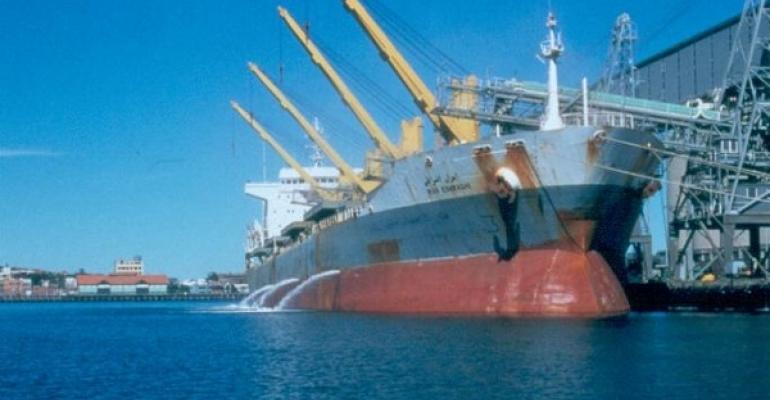The survey of 220 marine industry executives globally found that a fundamental concern for the industry is that the absence of a convention, or even a non-pre emptive existing legal framework, leaves the field open to additional and potentially inconsistent regulations by different jurisdictions.
While some international maritime conventions aimed at environmental protection, such as the sulphur cap regulation and International Convention for the Control and Management of Ships’ Ballast Water and Sediments, do exist, Clyde & Co explained that there is a distinct lack of global regulation surrounding other key environmental issues.
For example, the marine industry is not currently regulated at a global level for carbon emissions. The IMO announced in November 2016 that it would begin to consider “a plan to develop a strategy” to reduce greenhouse gas emissions from ships to be adopted in 2023.
This could lead to region-specific regulatory issues. Conte Cicala, partner at Clyde & Co in San Francisco said: "This lack of a global legal framework has already led to California unilaterally adopting and implementing some of the very first low sulphur fuel and ballast water treatment requirements for ships calling on California ports."
Illustrating how the disparity in regional and global environmental legislation can cause issues, Clyde & Co explained that California had its own ballast water requirements before the US adopted the same on a federal level. And there is even a difference between US regulations and the IMO convention which it opted out of due to differences in US law and the less stringent requirements of the convention.
There are encouraging signs however. According to the research, 64% think that green technologies will not place an unacceptable cost burden on ship operators.
"There is clearly an interest to explore the possibilities of green-tech. But the industry would prefer guidance, certainty and perhaps most importantly, uniformity,” Cicala said.
“There are lessons that have been learned from low sulphur caps and ballast water requirements. It's encouraging to see the IMO is already considering the issue of greenhouse gas emissions but quick and steady progress needs to be made before regional jurisdictions take action, so that the industry can have confidence to invest in new green-tech," she suggested.
David Loosley, chief executive, Institute of Marine Engineering, Science & Technology, said: “Formulating and introducing effective regulatory frameworks aimed at protecting the environment is always going to pose challenges for inherently global industries such as shipping. An additional layer of regional or national directives complicates matters further, as vessel operators must ensure compliance with multiple rule sets, while manufacturers must develop technological solutions that satisfy multiple specifications. This reality is reflected in the fact that IMarEST is increasingly involved in helping its members navigate this regulatory web.”
The report also found that key barriers to and issues around the adoption of new energy management solutions include: cost, where 63% think that costs will impede the adoption of new energy management solutions, availability of fuel, where 73% believe that fuel availability will strongly drive the market for energy management solutions and finally crew skills, where 64% were concerned that energy management solutions will place additional demands on crews
Cicala said: "Where fuel can account for as much as half of the operating costs for the shipping industry, it's no surprise that the marine industry is keeping an eye on both the availability of fuel and cost of energy management solutions."
"The cost of heavy fuel oil (HFO), which is the fuel most commonly used in ship engines has, by historical standards, remained relatively low over the past decade. As long as the cost of HFO is low compared to that of new energy management solutionns, it's unlikely that the benefits of the new technology will be felt as the industry will be unwilling to voluntarily invest," she concluded.
Copyright © 2024. All rights reserved. Seatrade, a trading name of Informa Markets (UK) Limited. Add Seatrade Maritime News to your Google News feed.


